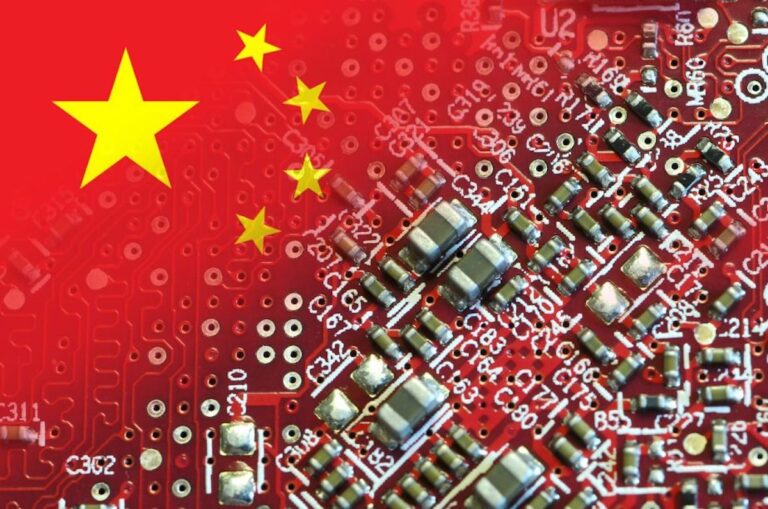Chinese fabless artificial intelligence chipmakers have downgraded designs to maintain access to production in Taiwan after the United States tightened chip export controls last October.
Reuters reported on Wednesday that Shanghai-based graphics processing unit (GPU) design firms MetaX and Enflame have submitted downgraded chip designs to Taiwan Semiconductor Manufacturing Co. (TSMC) for the second half of 2023 to meet U.S. chip export requirements.
MetaX reportedly developed a GPU called the C280 for TSMC production after it ran out of stock of its most advanced C500 chips earlier this year. TSMC told Reuters it was working with customers to ensure it complied with regulations relevant to its operations.
However, it remains to be seen whether TSMC has begun mass production of the C500 chips for MetaX.
According to public information gathered by Asia Times, MetaX had completed basic testing of its C500 chip on June 13 last year and was scheduled to start mass production at the end of the year, but this plan may have been thwarted by US regulations.
On October 17 last year, the U.S. Department of Commerce’s Bureau of Industry and Security (BIS) announced new rules banning the shipment to China of chips with a total processing power of 4,800 or more, or a performance density of 5.92 or more.
The new rules have blocked Nvidia’s A800 and H800 chips from being shipped to China. The A800 is said to have 70% of the performance of the A100. In October 2022, the BIS banned the shipment of the A100 to China.
According to Chinese media, MetaX’s C500 chip will have performance between the A100 and A800, with a computing power of 15 trillion floating-point operations per second (TFLOPs) in single-precision floating-point format (FP32), outperforming the A100’s 19.5 TFLOPs.
In fact, MetaX could also hire Shanghai-based Semiconductor Manufacturing International Corp (SMIC) to produce its AI chips, but SMIC has reportedly allocated most of its 7-nanometer chip capacity to Huawei Technologies.
H20 Chip
Nvidia was scheduled to unveil three AI chips — H20, L20 and L2 — for the Chinese market in November after the U.S. tightened semiconductor export controls last October, but the launch was delayed to 2024 as the California-based company wanted to ensure the chips complied with U.S. export regulations.
In March, Nvidia began taking preorders for its H20 chips. Alibaba reportedly ordered more than 30,000 H20 chips. Last month, abundant chip supplies in the Chinese market allowed sellers to sell the H20 chips at a price more than 10% lower than Huawei’s Ascend 910B.
According to a Hainan-based writer surnamed Tang, a server with eight H20 chips costs 1.1 million to 1.3 million yuan (US$151,783 to US$179,380), while a server with the same number of Ascend 910B chips costs around 1.3 million to 1.5 million yuan.
Tan emphasizes that the H20’s performance is only about half that of the Ascend 910B.
According to Chinese media, SMIC is currently responsible for manufacturing the Ascend 910B chip, the previous version of which, the Ascend 910, was made by Taiwan’s TSMC.
Some analysts say China will still need to import Nvidia’s AI chips because of SMIC’s limited production capacity for 7nm chips.
Jensen Huang’s speech
On May 29, Nvidia co-founder and CEO Jensen Huang was walking down the streets of Taipei during a visit to Taiwan when he was approached by a reporter from China Television Network (CTS) and given an impromptu interview.
The so-called “Godfather of AI” said that “Taiwan is one of the most important countries in the world” because it is the center of the electronics industry.
“Taiwan is a very important country because the computer industry exists because of Taiwan,” he added, indicating that his description of the country was not a slip of the tongue.
Fortunately, his speech has not yet caused any major problems in China.
China launched large-scale military exercises off the coast of Taiwan from May 23 to 24. China criticized Taiwanese President Lai Ching-te for promoting “Taiwan independence” in his inaugural speech on May 20.
“Huang’s political stance seems very similar to Lai’s,” Chen Fei, an associate professor at the School of Politics and International Relations at Huazhong Normal University, wrote in an article on Wednesday. “But as a businessman, he will undoubtedly put commercial interests first.”
Chen said Huang just wanted to say something to please Taiwanese contract manufacturers during his visit to ensure stable chip production. He said U.S. chip export restrictions have hurt Nvidia’s revenue in China but the company will continue to treat China as an important market.
A Jiangxi-based columnist who goes by the pen name “Spring Dream” wrote in an article that Huang has a strong political sense and is unlikely to make any controversial speeches on the Taiwan issue.
The author said some media outlets have tried to use Huang’s fame to push their own political agenda. Taiwan’s pro-Beijing party, the Kuomintang, complained in October 2022 that the CTS editorial department was controlled by an editorial team pro-Democratic Progressive Party.
Also read: Huawei plans to build 3nm chips, but when?
Follow Jeff Pao on Twitter Jeff Pao 3

